Cannon made of aluminum foil and matches and multi-colored liquid: students conduct experiments to practice scientific inquiry
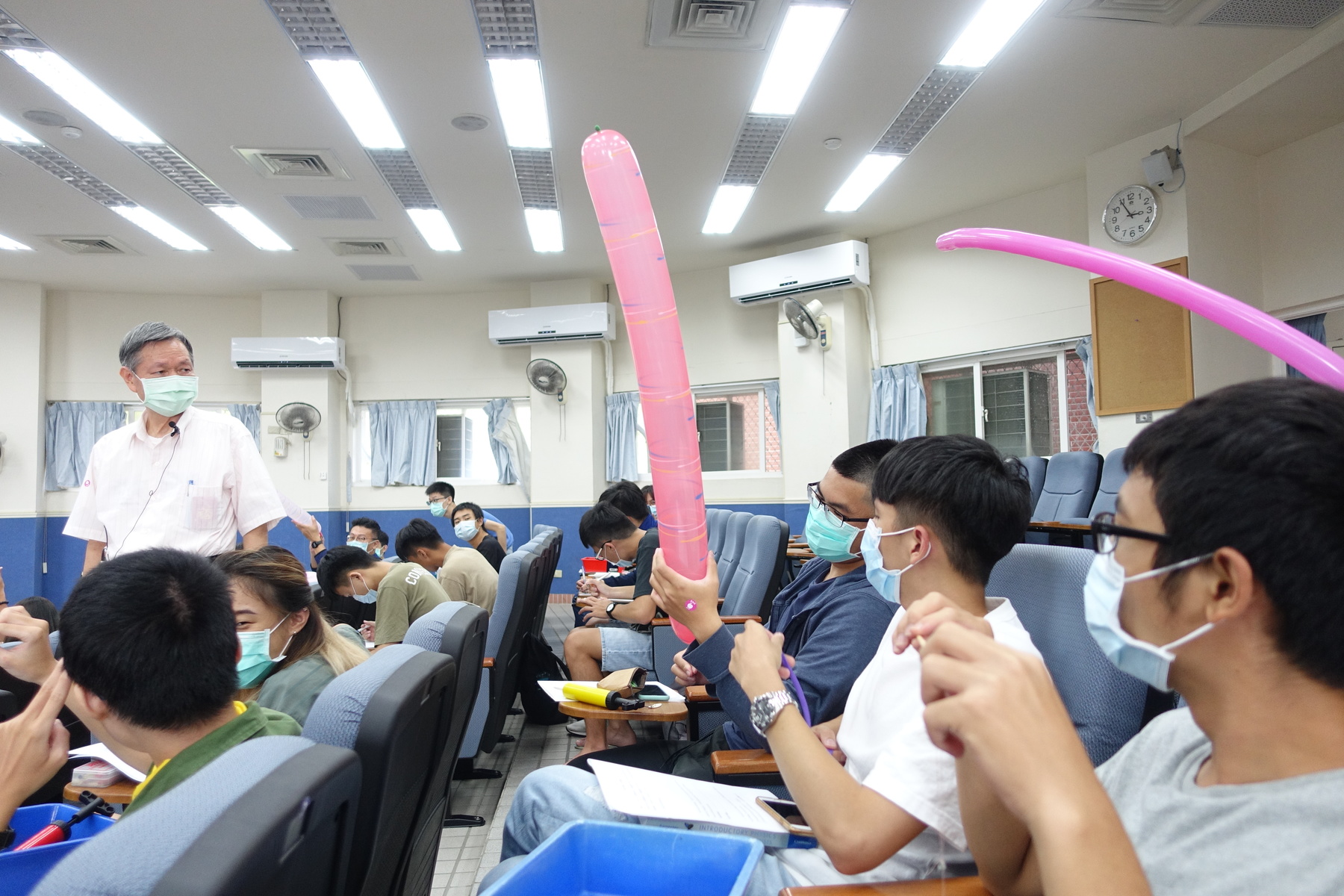
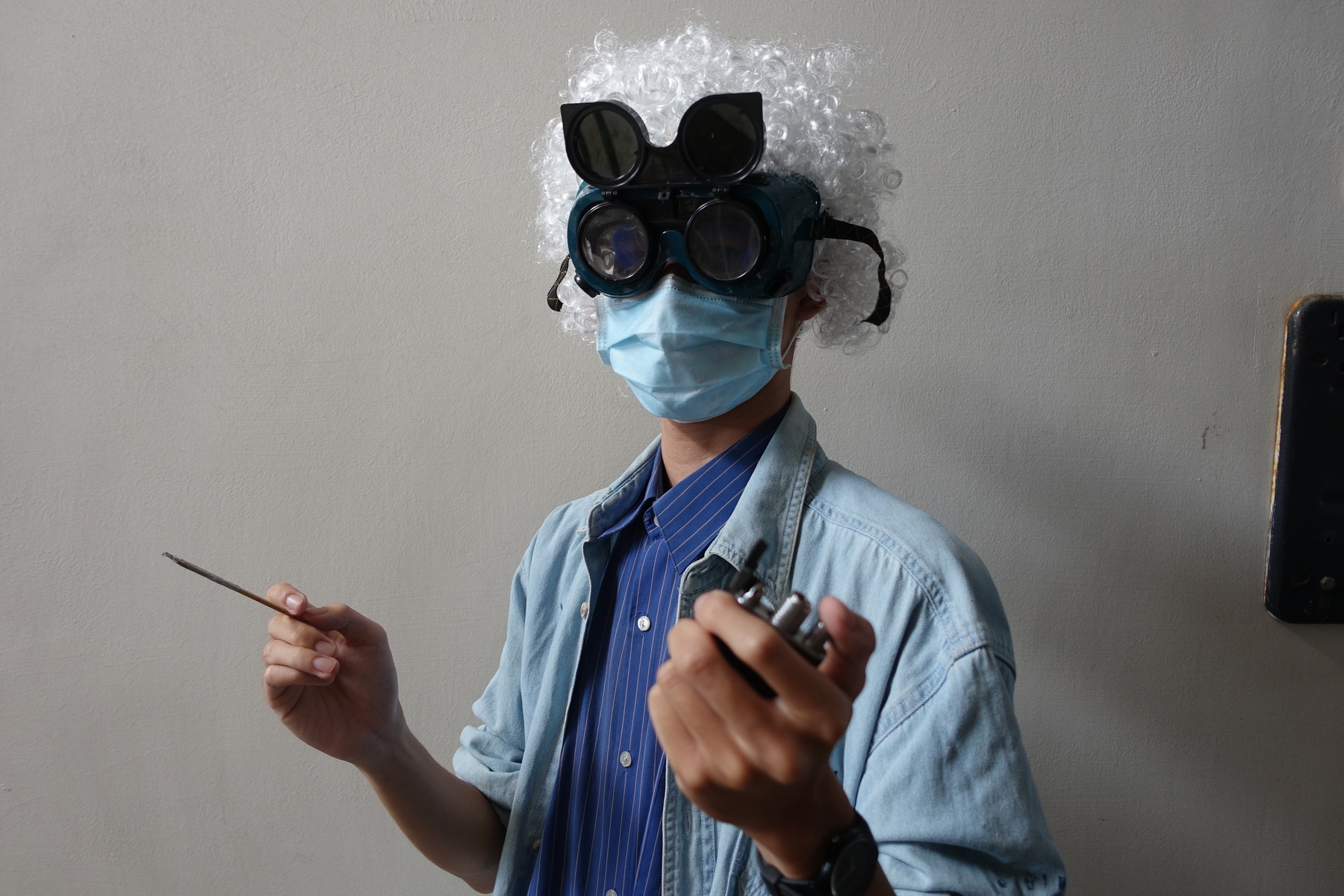
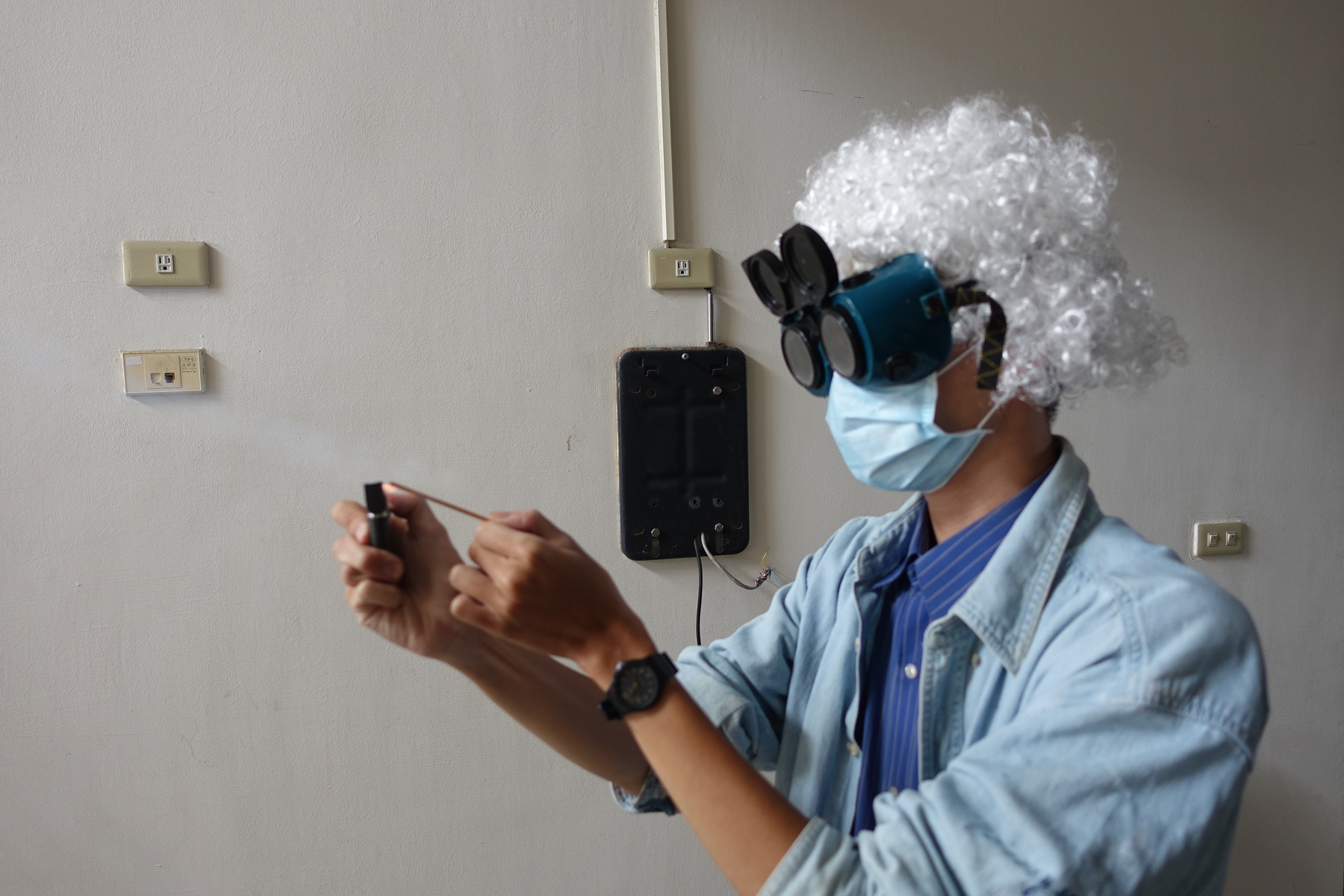
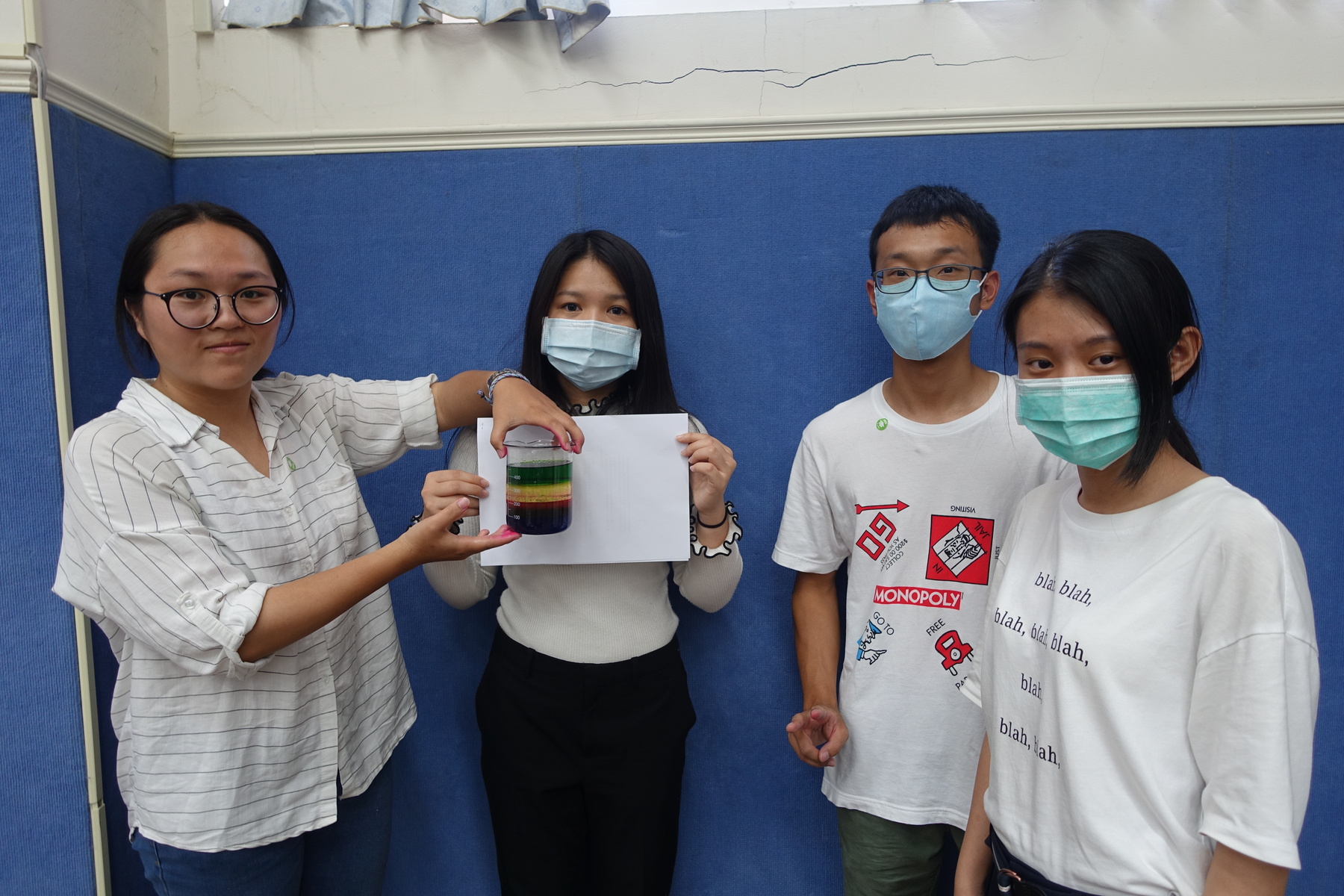
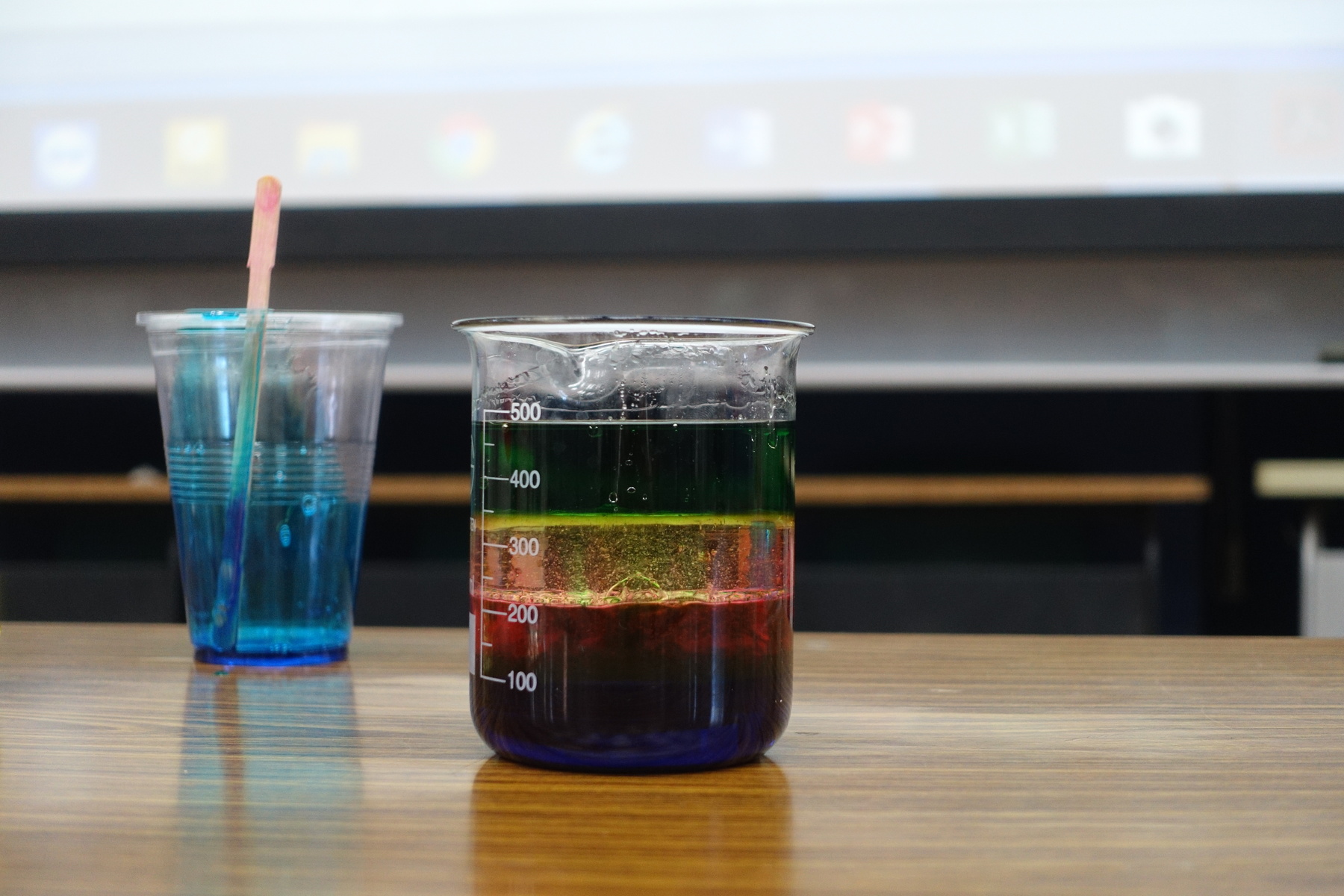
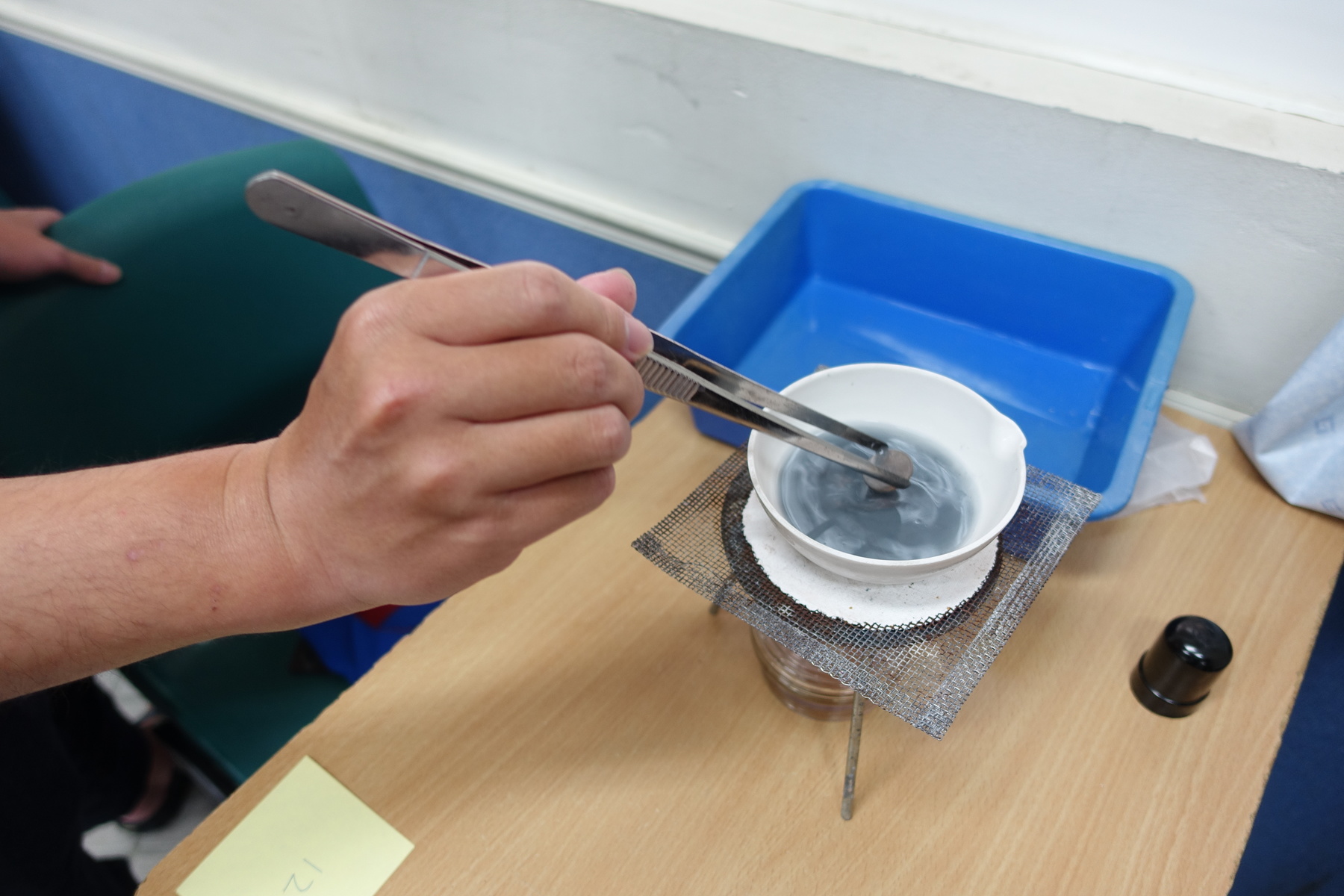
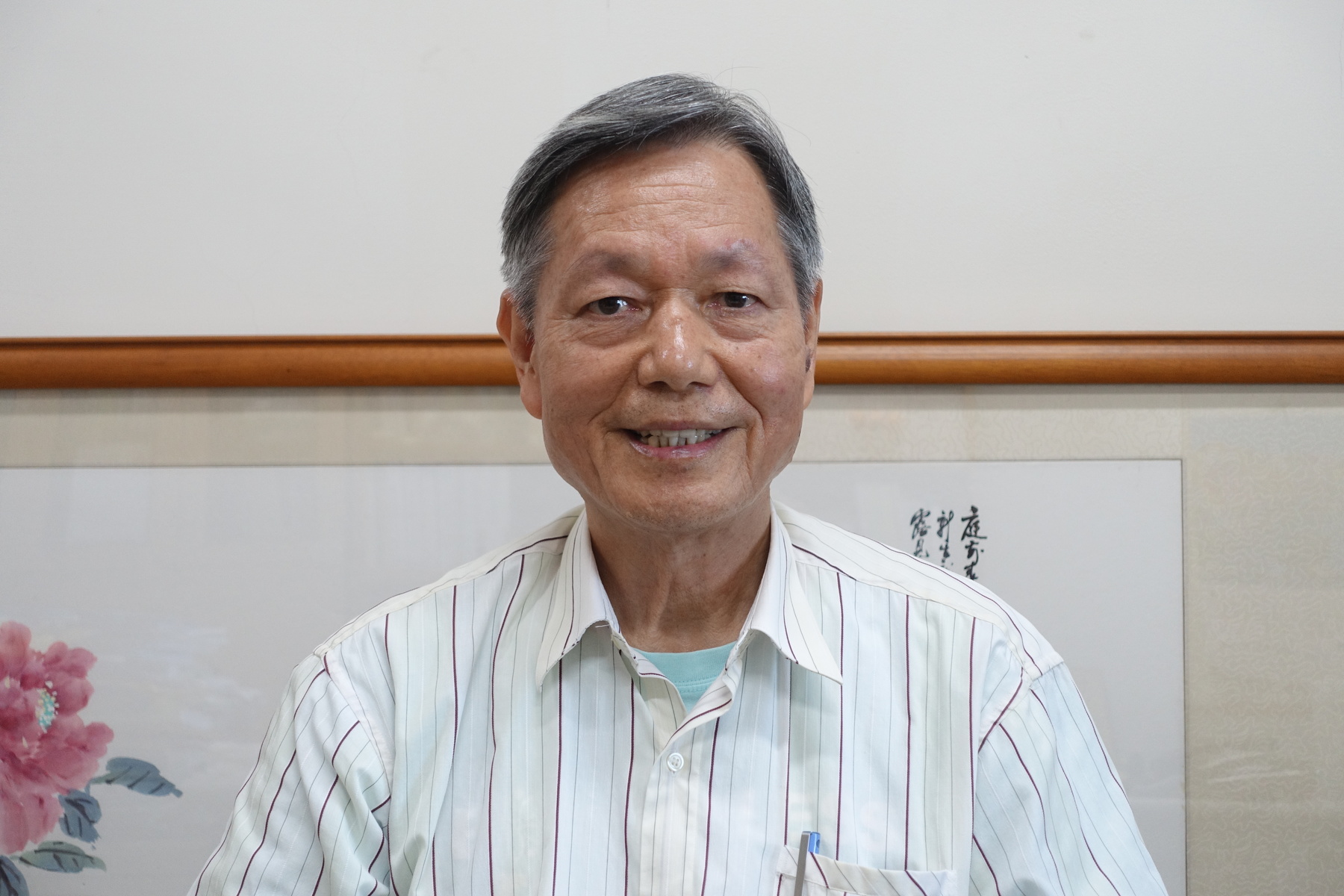
(Report by student journalist) What kind of competencies do students need to work on? The former National Project Manager of the Programme for International Student Assessment (PISA) and Chair Professor of the Center for General Education Huann-Shyang Lin emphasized the importance of critical thinking and scientific inquiry and said that “inquiry” is the process of solving problems, which can be divided into three steps: recognition of a problem, identifying the research question, planning an investigation, collecting data and evidence, and making a conclusion. These competencies can be applied to any discipline, and are of great help when taking up further studies or entering the labor market.
Professor Huann-Shyang Lin said that in the past, when he was the National Project Manager of the PISA project, he realized that certain experiences can affect the performance of the students. Having gone through the related reference literature, he enumerated factors such as reading literacy, affective factors, higher-order thinking skills, and informal science learning experiences, identified the influencing factors using PISA Data Analysis and proposed improvement solutions on the national science education policy.
Professor Lin also said that in recent years the Taiwanese education shifted its focus from knowledge to literacy: memory exercises are gradually abandoned for nurturing thinking skills, which very often are a weak point of Taiwanese students, according to his observations. Professor Lin started a general education course – “The Application of Scientific Inquiry” for the students to design experiments on their own, select research questions and practice with scientific experiments and investigation of the underlying principles.
The course students were divided into working groups, which, at the end of the semester, had to demonstrate an experiment. A third-year student of the Department of Theater Arts Chun-Yen Chuo, together with his group, made a cannon out of aluminum foil and matches. Chuo said that in the past he used to be interested in rockets and even made a water rocket himself. When demonstrating the experiment, he used stage props and wore protection gear, safety glasses, and a vintage wig resembling Albert Einstein’s hairstyle. He said that, after all, the strong suit of the students of the Department of Theatre Arts is the ability to attract attention and curiosity of the audience. Preparing his stage attire and brainstorming for the experiment helped him improve his ability to identify and solve problems.
A second-year student of the Department of Political Economy Chun-Wei Hung demonstrated the property of liquids of different density – if mixed, they will layer on top of each other, displaying five colors. He said that when preparing the experiment, the group encountered several difficulties: a glass was once broken, some other time the liquids mixed and reacted with each other, and only after the group identified and solved problems, it managed to complete the experiment! He said that this course aroused his inquisitiveness, encouraged him to study, and explore the underlying causes and possible solutions. He said that this is the necessary approach to learn anything.
Professor Lin said that the end-of-semester group experiment demonstration, besides making the course more interesting, can let the students practice cognitive thinking skills. One of the groups demonstrated an example of molecular gastronomy - this has a wide application in creativity, aesthetics, science, and everyday life. He hopes that the students will do further reading after class and apply the acquired scientific competencies to find clues and data to make one’s research or arguments more persuasive.
(Edited by Public Affairs Division)
Professor Huann-Shyang Lin said that in the past, when he was the National Project Manager of the PISA project, he realized that certain experiences can affect the performance of the students. Having gone through the related reference literature, he enumerated factors such as reading literacy, affective factors, higher-order thinking skills, and informal science learning experiences, identified the influencing factors using PISA Data Analysis and proposed improvement solutions on the national science education policy.
Professor Lin also said that in recent years the Taiwanese education shifted its focus from knowledge to literacy: memory exercises are gradually abandoned for nurturing thinking skills, which very often are a weak point of Taiwanese students, according to his observations. Professor Lin started a general education course – “The Application of Scientific Inquiry” for the students to design experiments on their own, select research questions and practice with scientific experiments and investigation of the underlying principles.
The course students were divided into working groups, which, at the end of the semester, had to demonstrate an experiment. A third-year student of the Department of Theater Arts Chun-Yen Chuo, together with his group, made a cannon out of aluminum foil and matches. Chuo said that in the past he used to be interested in rockets and even made a water rocket himself. When demonstrating the experiment, he used stage props and wore protection gear, safety glasses, and a vintage wig resembling Albert Einstein’s hairstyle. He said that, after all, the strong suit of the students of the Department of Theatre Arts is the ability to attract attention and curiosity of the audience. Preparing his stage attire and brainstorming for the experiment helped him improve his ability to identify and solve problems.
A second-year student of the Department of Political Economy Chun-Wei Hung demonstrated the property of liquids of different density – if mixed, they will layer on top of each other, displaying five colors. He said that when preparing the experiment, the group encountered several difficulties: a glass was once broken, some other time the liquids mixed and reacted with each other, and only after the group identified and solved problems, it managed to complete the experiment! He said that this course aroused his inquisitiveness, encouraged him to study, and explore the underlying causes and possible solutions. He said that this is the necessary approach to learn anything.
Professor Lin said that the end-of-semester group experiment demonstration, besides making the course more interesting, can let the students practice cognitive thinking skills. One of the groups demonstrated an example of molecular gastronomy - this has a wide application in creativity, aesthetics, science, and everyday life. He hopes that the students will do further reading after class and apply the acquired scientific competencies to find clues and data to make one’s research or arguments more persuasive.
(Edited by Public Affairs Division)
Click Num:
Share
